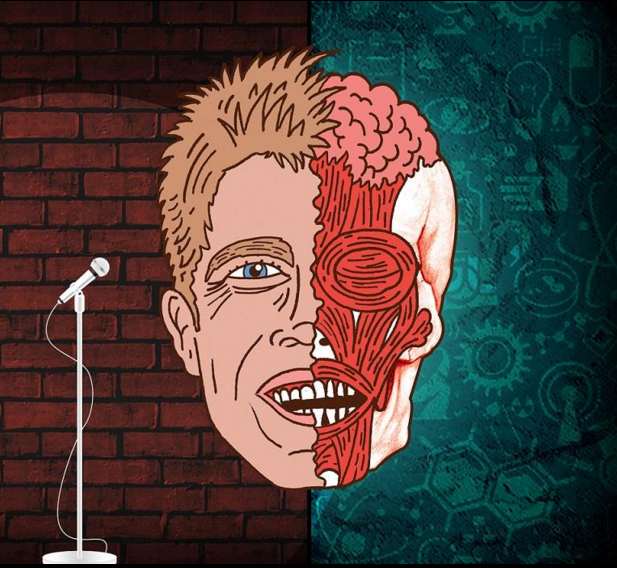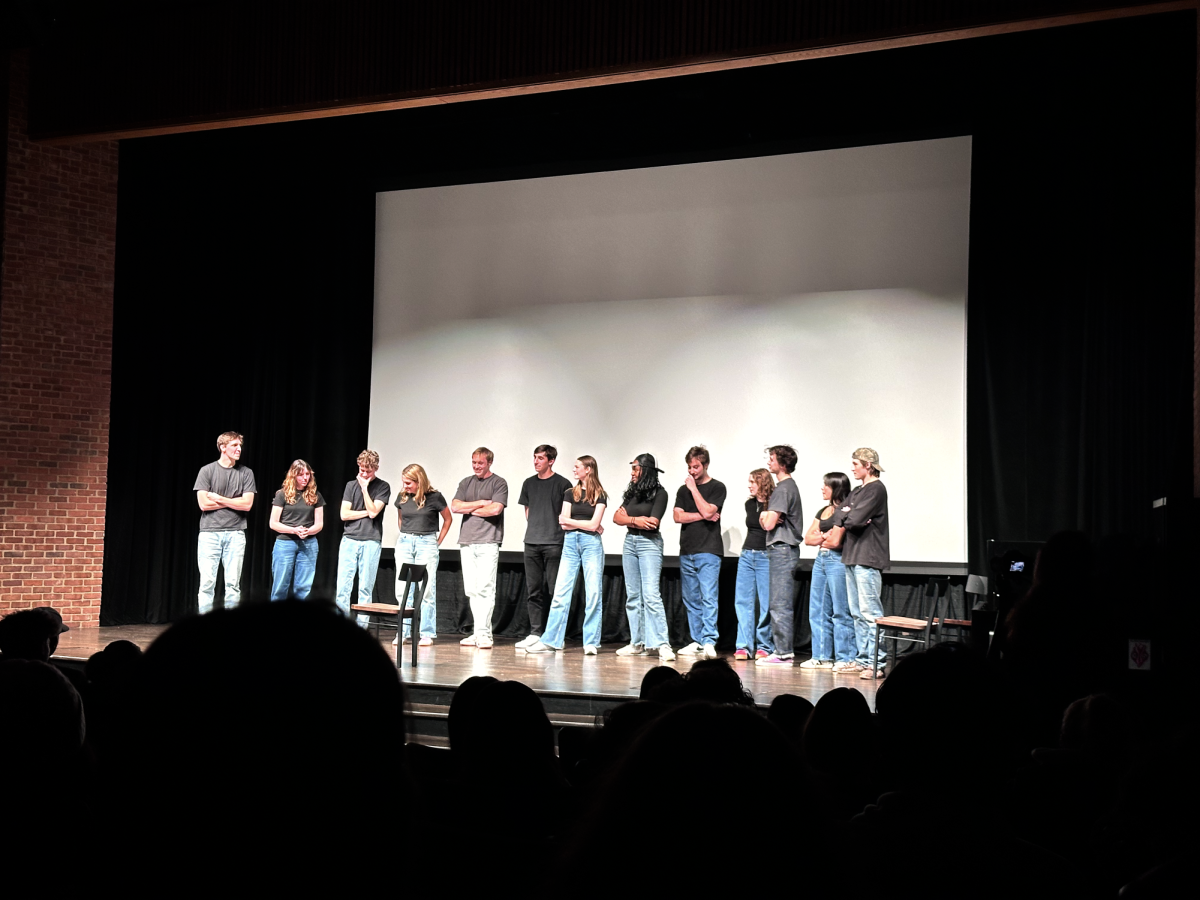Two stand up comedians and a couple of accomplished psychology professors walk into a club—sounds like the beginning of a joke, right? Veteran comedian Shane Mauss made it into an entire set, and is taking the idea of cerebral humor to the next level.
Mauss, accompanied by fellow comedian David Waite and Assistant Professors in the Department of Psychology and Human Development Kathryn Humphreys and Lisa Fazio, will be bringing his show Stand Up Science to Third Coast Comedy on March 17 at 7 p.m. Stand Up Science integrates two of Mauss’ favorite worlds—comedy and science—to create a show that will both educate and thoroughly entertain.
Mauss began his stand up career largely following a traditional comedic path, appearing on multiple late night shows with pithy short jokes and his signature absurdist style and later touring clubs nationwide. As his career progressed, Mauss began to integrate science into his acts, including his Netflix special Mating Season.
“Oftentimes when you get more experienced—when the comic gets more experienced, when the comic has more eyes on them and what they’re saying holds a little more weight because they have a little more attention—it seems like it’s a pretty natural progression for comics to try to delve a little deeper into the truth of life, whatever that might mean for an individual comic,” Mauss said. “For me that’s expressed in a scientific way.”
He continued to lean into his scientific curiosity and about four and a half years ago, Mauss started the weekly podcast, “Here We Are,” where he interviews a different scientist about their research, which often focuses on different psychological, behavioral and evolutionary phenomena.
Stand Up Science offers a similar opportunity for academics to present their findings to the general public; they deliver the facts and Mauss takes care of the laughs. Mauss explained that his job is to set the scene and warm up the audience before the first academic presentation. The show then alternates between guest speakers and comic relief, and closes with a panel made up of both the comedians and academics.
Both Humphreys and Fazio are sharing their recent findings on their respective research areas. Humphreys will be talking about how early stressful experiences can impact brain development and subsequent behavior, and how positive experiences may mitigate these effects. Fazio will present her research on misinformation and fake news, and how our brains are set up so it’s difficult to detect errors in what we read. Though they’ve never graced the stage at a comedy club before, both Humphreys and Fazio expressed their excitement to share their work with the general public.
“Whatever gets people out of the house to be exposed to new ideas is a good thing, so I think the comedy part is probably what’s going to attract most people to come and then they get to tell themselves that they’re also going to be learning something in the meantime,” Humphreys said.
While comedy and science aren’t a common combination, critically examining the human experience lies at the heart of both fields.
“I think that there are a lot of really big parallels between what comedy and science do. Even your least cerebral comedy is still very observational. Observational comedy is your more basic, traditional comedy. Even that is that your idea is you’re noticing something other people aren’t noticing or aren’t paying attention to, or seeing things in a new way,” Mauss said. “You’re revealing this unnoticed or underappreciated truth of the world to people. That’s a lot of what scientists are doing as well.”
The beauty of Stand Up Science is that Mauss aims to emphasize research and ideas that are not only interesting, but relatable.
“At the end of the day, a lot of this stuff is really interesting and all of that, but I’m not really in this for the fun facts necessarily,” Mauss said. “The really meaningful part of a lot of this to me is that people can use a lot of this information to better their lives, to lead happier lives, potentially more productive lives, more sane lives, and we can better understand some of the mental and physical illnesses people go through.”
Tickets for the March 17 show are available here starting at $15, and if you want to learn more about Mauss’ unique combination of stand up and science, check out his website.






